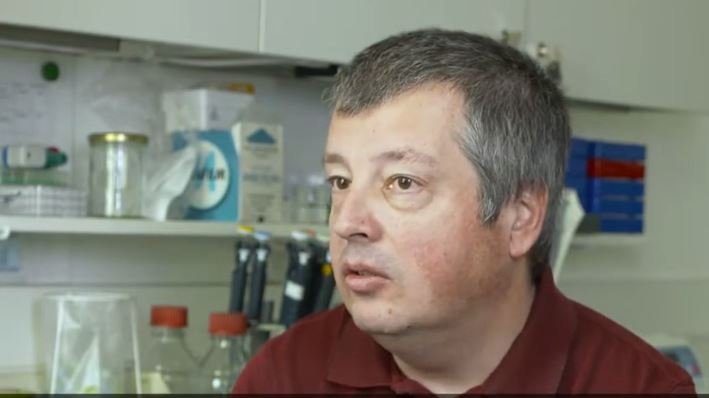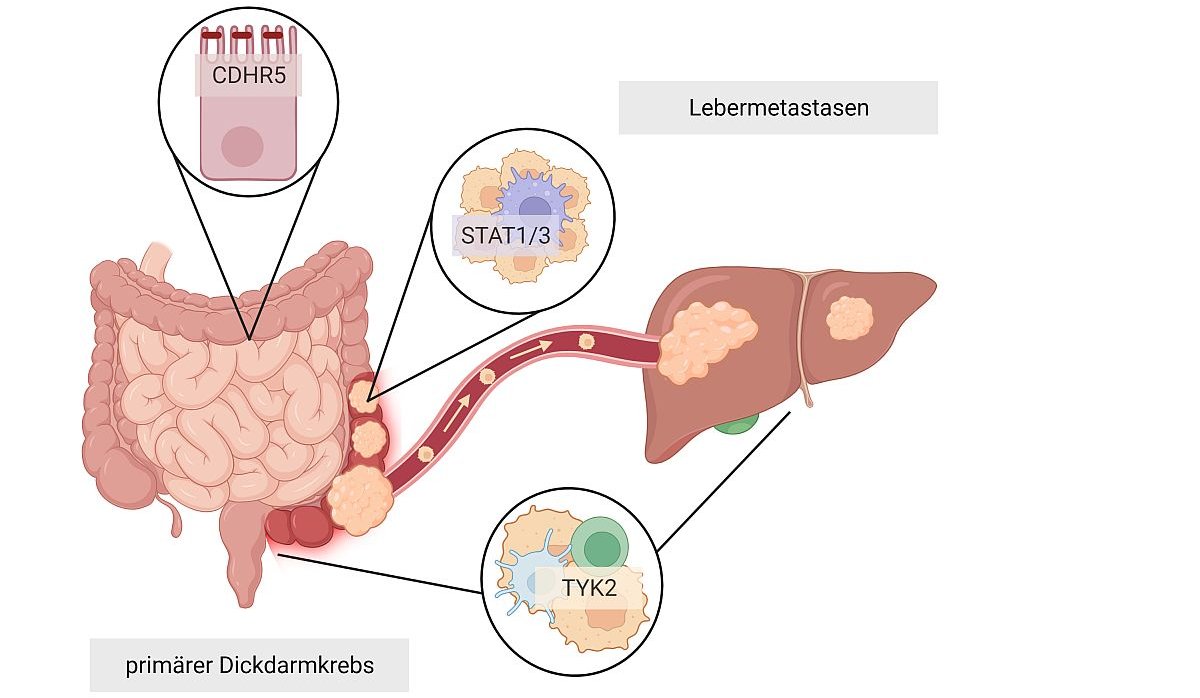Assoc. Prof. Priv.-Doz. Mag. Dr. Robert Eferl
Gruppenleiter
T: +43 (0)1 40160-57571
F: +43 (0)1 40160-957510
robert.eferl@meduniwien.ac.at
ORCID: 0000-0002-6074-7144
Forschungsschwerpunkt
Unsere Forschungsgruppe interessiert sich primär für molekulare und zelluläre Mechanismen, die an der Entstehung und der Metastasierung von Dickdarmkrebs beteiligt sind. Patient:innen mit entzündlichen Darmerkrankungen haben ein erhöhtes Risiko an Dickdarmkrebs zu erkranken. Daher studieren wir die Rolle von Zytokin-Signalwegen, die durch Entzündungen aktiviert werden, und die Funktion der Darmbarriere, die bakterielle Entzündungen verhindert, in Darmtumoren.
Ausgewählte Publikationen
STAT1 is a sex-specific tumor suppressor in colitis-associated colorectal cancer.
Crnčec I, Modak M, Gordziel C, Svinka J, Scharf I, Moritsch S, Pathria P, Schlederer M, Kenner L, Timelthaler G, Müller M, Strobl B, Casanova E, Bayer E, Mohr T, Stöckl J, Friedrich K, Eferl R.
Mol Oncol. 2018 Apr;12(4):514-528. doi: 10.1002/1878-0261.12178
Epidermal growth factor signaling protects from cholestatic liver injury and fibrosis.
Svinka J, Pflügler S, Mair M, Marschall HU, Hengstler JG, Stiedl P, Poli V, Casanova E, Timelthaler G, Sibilia M, Eferl R.
J Mol Med (Berl). 2017 Jan;95(1):109-117. doi: 10.1007/s00109-016-1462-8.
Myeloid STAT3 promotes formation of colitis-associated colorectal cancer in mice.
Pathria P, Gotthardt D, Prchal-Murphy M, Putz EM, Holcmann M, Schlederer M, Grabner B, Crncec I, Svinka J, Musteanu M, Hoffmann T, Filipits M, Berger W, Poli V, Kenner L, Bilban M, Casanova E, Müller M, Strobl B, Bayer E, Mohr T, Sexl V, Eferl R.
Oncoimmunology. 2015 Jan 22;4(4):e998529. eCollection 2015
A mouse model to identify cooperating signaling pathways in cancer.
Musteanu M, Blaas L, Zenz R, Svinka J, Hoffmann T, Grabner B, Schramek D, Kantner HP, Müller M, Kolbe T, Rülicke T, Moriggl R, Kenner L, Stoiber D, Penninger JM, Popper H, Casanova E, Eferl R.
Nat Methods. 2012 Sep;9(9):897-900. doi: 10.1038/nmeth.2130
STAT3 protects from liver injury and fibrosis in a mouse model of sclerosing cholangitis.
Mair M, Zollner G, Schneller D, Musteanu M, Fickert P, Gumhold J, Schuster C, Fuchsbichler A, Bilban M, Tauber S, Esterbauer H, Kenner L, Poli V, Blaas L, Kornfeld JW, Casanova E, Mikulits W, Trauner M, Eferl R.
Gastroenterology. 2010 Jun;138(7):2499-508. doi: 10.1053/j.gastro.2010.02.049.
Alle Publikationen
Vorstellung Maria Sibilia, Robert Eferl, Martin Filipits

Nach der Aktivierung werden Daten an YouTube übermittelt. Weitere Infos hier: Datenschutzerklärung

